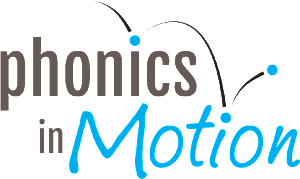Children need rich opportunities to learn and use new words. Vocabulary is an essential part of language competence. As kids grow, their vocabulary develops. The more words they know, the better they understand what they hear and read and thus become better communicators. A good vocabulary helps your child in school and beyond because […]
Read morePhonemic Awareness – So Much More Than Just Blending
Phonemic Awareness is one of the basic skills of early literacy. Are you doing enough to improve phonemic awareness skills in your classroom?
Read moreReading Comprehension: The Key To Educational Success
Reading comprehension is one of the pillars of early literacy. It is one of the most important skills for early readers to learn. Providing young readers with engaging and interactive experiences helps to encourage development. Reading comprehension is hard. Learning to read individual words is important, but understanding the content is the key to mastering […]
Read moreThe 5 Pillars of Early Literacy
Primary teachers spend most of their day teaching literacy, and for good reason. Research shows that children’s early experiences with print are critical in developing their language and literacy skills. Surprisingly, there is little discussion about what it means to teach reading or how to teach early reading skills. Some people think that learning to […]
Read moreSounds and Letters: How Kids Learn To Read
One of the cornerstones in early education is teaching children to connect sounds with letters and letter combinations. Students need to know that sounds can change depending on how they are used. The knowledge of letters and the sounds they make will guide students through the reading process. Reading starts with sounding out words […]
Read moreUsing The Science of Reading To Encourage Better Readers
Have you ever wondered how children learn to read? Or have you ever wondered why your child can’t “sound it out?” Learning how kids learn to read will make you a better teacher and give you scientific insights that can aid your child’s reading ability. The Science of Reading resulted from one of the […]
Read moreLearning Without Fear: Risk-Free Learning in Early Literacy
In today’s society, risk is something that we all have to manage on a daily basis. Risk can often manifest as fear of failure or embarrassment over mistakes in the classroom. A risk-free learning environment provides early learners with a safe place to learn and make mistakes without any risk of punishment or embarrassment. A […]
Read moreDeveloping a Strategic Handwriting Routine
Handwriting is one of the most important components of early literacy, and developing a handwriting routine is the simplest way to get started. Since learning to write is a skill that many students resist, ensuring that you are actively teaching this skill is essential to imprinting it into muscle memory. Why are Handwriting Routines Important? […]
Read moreEarly Handwriting Skills: The Key To Positive Educational Outcomes
Developing strong early handwriting skills is a critical component of developing great readers and writers. Tied directly to future educational outcomes, early handwriting skills contribute to the foundation of primary literacy. Early handwriting skills are sometimes underestimated by parents and educators, but extensive research has been conducted in this area. The results demonstrate a clear […]
Read moreWhen Do We Use Minimal Pairs?
Teaching language to students is always enjoyable and rewarding, but do you have a fun and effective method of teaching Minimal Pairs? We use Minimal Pairs to improve the pronunciation of distinct sounds (phonemes) in a particular language. Through practice, Minimal Pairs assists with the correct pronunciation, enabling us to distinguish the different sounds in […]
Read more
